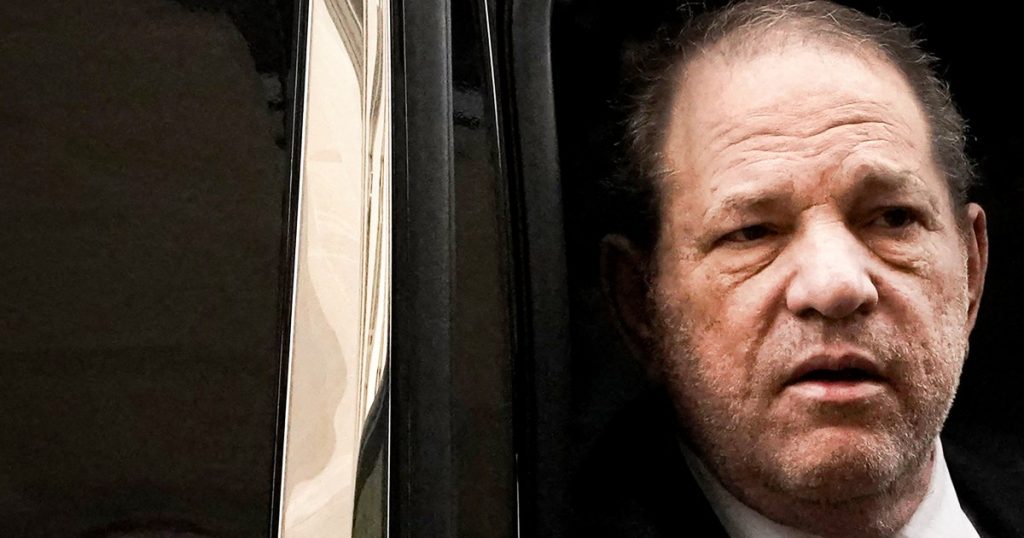Harvey Weinstein, the former Hollywood producer, has been transferred back to Rikers Island jail following the overturning of his 2020 rape conviction by the New York Court of Appeals. Weinstein, who is 72 years old, was serving a 23-year sentence at Mohawk Correctional Facility after being found guilty of rape and sexual assault charges. He will appear before a judge next week in Manhattan Criminal Court to address the recent developments in his case. The court found that the judge in Weinstein’s trial made improper rulings that prejudiced the former film mogul, including allowing testimony of uncharged, alleged prior sexual acts that served no material non-propensity purpose.
Despite the overturning of his New York conviction, Weinstein remains in prison due to a separate conviction in Los Angeles in 2022 for rape. He was found guilty in that case but acquitted of a count of sexual battery. Weinstein has filed a notice to appeal the verdict in the Los Angeles case as well. The Manhattan District Attorney’s Office has stated that they will do everything in their power to retry the case in light of the recent developments and remain committed to supporting survivors of sexual assault. The decision to overturn Weinstein’s conviction has been met with shock and outrage, with many criticizing the handling of the #MeToo trial and the impact it may have on future cases involving allegations of sexual misconduct.
Weinstein’s case has been a significant moment in the #MeToo movement, which aims to bring attention to and seek justice for survivors of sexual harassment and abuse. The allegations against Weinstein, along with the subsequent trial and conviction, catalyzed a wave of similar revelations in the entertainment industry and beyond. The decision to overturn his conviction has raised concerns about the challenges survivors face in seeking justice and the need for legal reforms to prevent similar situations from occurring in the future. The court’s reasoning for overturning the conviction, citing improper testimony and the prejudicial impact on Weinstein, has sparked debates about the legal system’s handling of such high-profile cases and the implications for the broader fight against sexual misconduct.
The impact of Weinstein’s case goes beyond the courtroom, as it has sparked important discussions about power dynamics, gender equality, and the importance of supporting survivors of sexual assault. The #MeToo movement has highlighted the prevalence of such issues in various industries and communities, leading to greater awareness and advocacy for change. The decision to retry Weinstein’s case in light of the overturned conviction reflects a continued commitment to seeking justice for survivors and holding perpetrators accountable for their actions. The legal proceedings surrounding Weinstein’s case and other high-profile instances of sexual misconduct serve as reminders of the importance of addressing these issues through both legal and societal means to create a safer and more equitable world for all individuals.
Weinstein’s return to Rikers Island jail and impending court appearance mark a new chapter in his legal saga, with uncertainty surrounding the next steps in his case and the broader implications for the fight against sexual misconduct. The decision to overturn his conviction has reignited conversations about the challenges faced by survivors in seeking justice and the need for continued support and advocacy to address these issues. The legal developments in Weinstein’s case underscore the complexities of prosecuting such cases and the importance of ensuring fair and impartial trials to deliver justice for survivors and hold perpetrators accountable. As Weinstein prepares to face a new round of legal proceedings, the impact of his case on the #MeToo movement and broader efforts to combat sexual misconduct is likely to be a topic of ongoing discussion and debate in the years to come.


